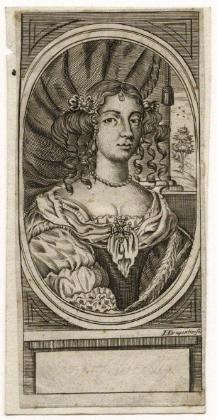Where's Wolley? Looking for early modern women's life stories beyond the text.

Thursday 1 December 2016, 5.00PM
Speaker(s): Sara Pennell (Greenwich)
I am keen to revisit the life of the woman who is often cited – now, following on in part from the scholarship undertaken by Elaine Hobby and others – as one of the first women to make what might be termed something of a living from writing in Restoration England, Hannah Wolley.
For all the increasing visibility of writers like Wolley beyond the conventional notion of canonical literary production in the seventeenth century, we still have scant information about how such women came to be writers, how they came to be published, how they came to be commercially viable (if they were) as producers/co-producers of texts to which their names were attached. Their life stories are very often only deducible from biographical material embedded in their texts, rather than from extensive surviving archival deposits; in Wolley’s case this is further complicated by the introduction of such material into the historical record, from texts it is not entirely clear she ever had a hand in producing.
This is a new attempt to think about Wolley’s routes to text-making that move beyond her own words and the very few archival traces that survive, to think more critically about how her life prior to publication shaped her opportunities to enter into print: as working adolescent, working wife and a widow, all during a period of political, social and cultural upheaval. Indeed – and taking advantage of the recent acquisition by Tate Britain of the portrait of a woman in a white dress by Joan Carlile, labelled another ‘first’ for the mid-seventeenth century (see http://www.bbc.co.uk/news/entertainment-arts-37427612) – I want to consider how women like Wolley and Carlile used the opportunities for commercial and ‘professional’ engagement thrown up in and around London during the 1650s and early 1660s, to develop their respective products (commissioned portraiture; non-fiction texts), their networks of production and dissemination, and their audiences.
(image: Engraving of a woman, given in the National Portrait Gallery catalogue as ‘Hannah Woolley’ [which is faintly written in pencil, in the blank cartouche] by Jan Drapentier, after an unknown artist. NPG D42381)
Sara Pennell is currently senior lecturer in early modern British history at the University of Greenwich, having previously taught at the University of Roehampton and worked at the V&A Museum on the Tudor and Stuart displays in the British Galleries. She is the author of The Making of the English Kitchen, 1600-1850 (Bloomsbury, 2016), and co-editor (with Michelle DiMeo) of Reading and Writing Recipe Books, 1550-1800 (Manchester University Press, 2013). She is currently working out what she wants to write next, but it might be about Hannah Wolley; or mending things in early modern England; or concepts of plebeian property in the long eighteenth century. She just needs to make her mind up.
Location: BS/008
Email: jacky.pankhurst@york.ac.uk
